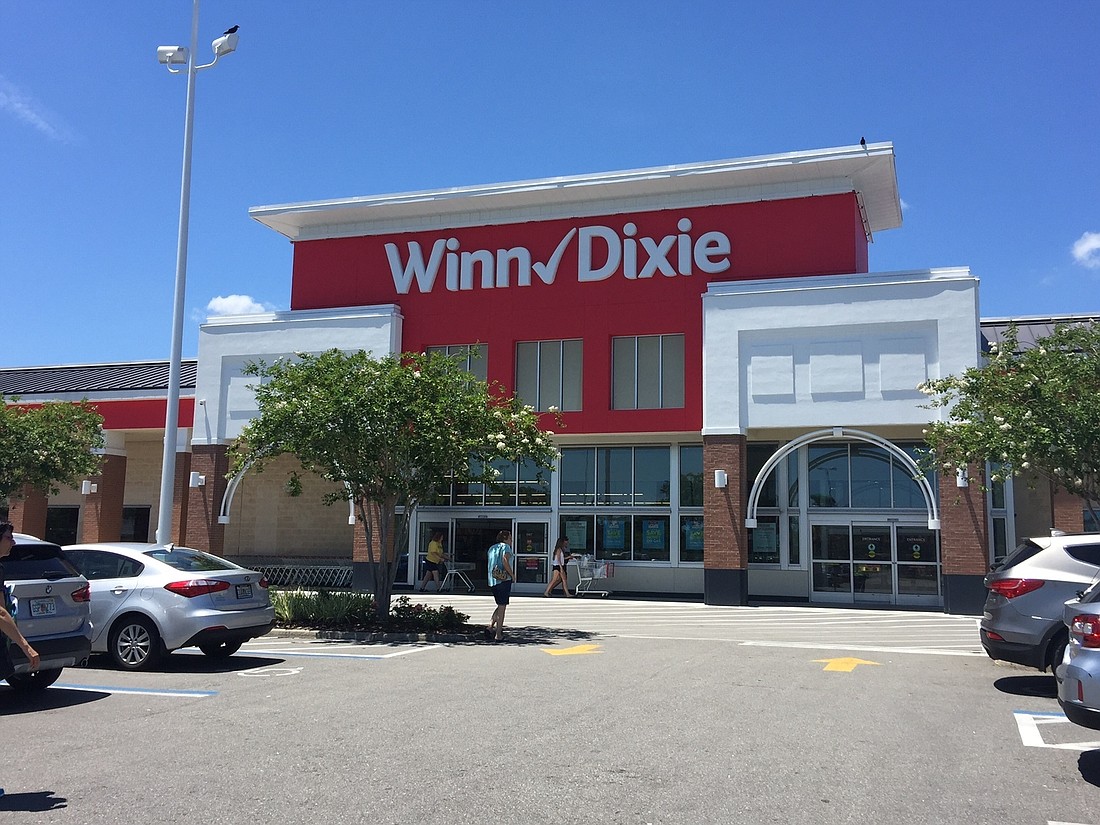
More than a decade after it emerged from a Chapter 11 bankruptcy restructuring, several reports in recent days say debt issues could force Winn-Dixie’s current owner, Southeastern Grocers LLC, into another Chapter 11 reorganization filing.
Moody’s Investors Service last week downgraded its ratings on Southeastern, saying the supermarket company’s operating performance is improving but it is having difficulty paying $900 million in debt coming due in the next two years.
“The high refinancing risk due to the company’s significant debt maturities in 2018 and 2019 is a cause for concern as the current capital structure is unsustainable and the weak liquidity primarily due to the significant debt maturities increases the probability of a distressed exchange, hence the downgrade,” Moody’s Vice President Mickey Chadha said in a news release.
“From an operating performance standpoint Bi-Lo has demonstrated improvement in EBITDA (earnings before interest, taxes, depreciation and amortization) and credit metrics and we expect this trend to continue,” he said.
Jacksonville-based Southeastern Grocers was formed after Winn-Dixie Stores Inc. merged with Bi-Lo LLC in 2012, with the headquarters put in Winn-Dixie’s Jacksonville offices.
The $900 million in debt was issued by Bi-Lo Holding Finance and affiliated companies, Moody’s said. It lowered its rating on the companies from B3 to Caa1.
“Obligations rated Caa are judged to be speculative of poor standing and are subject to very high credit risk,” according to Moody’s ratings definitions.
Bloomberg News reported holders of those bonds are considering a debt-for-equity swap that would give them ownership stakes.
The report said that swap could be done in a Chapter 11 bankruptcy process, but it could also be done out of court.
Southeastern is controlled by private equity firm Lone Star Funds. Moody’s said in a report on the downgrade that Lone Star has contributed about $600 million in equity to the company but has taken $980 million in cash distributions since 2011.
“The company’s whole capital structure has to be refinanced in the very near term as it does not
have enough liquidity to repay debt and run its business,” Moody’s said.
“Although we believe the company will ultimately be able to refinance and realign its capital structure to be more sustainable for the longer term, the refinancing risk is high and in our view there is a potential for a distressed exchange.”
Bloomberg said Lone Star is not willing to commit additional capital to the company.
Besides Winn-Dixie and Bi-Lo, Southeastern operates stores under the Harveys and Fresco y Mas banners.
The company operates more than 700 supermarkets in seven Southeastern states, employing more than 50,000 people.
As a privately owned company, Southeastern does not publicly report financial data. Moody’s said the company generated $10.1 billion in revenue in the 12 months ended July 12.
Both Winn-Dixie and Bi-Lo went through Chapter 11 restructurings before their merger.
Winn-Dixie filed for Chapter 11 in U.S. Bankruptcy Court in Jacksonville in February 2005 and emerged in November 2006.
Winn-Dixie’s shareholders were wiped out in the bankruptcy but it remained a public company, with new stock issued to pay off claims in the restructuring.
Lone Star acquired Bi-Lo in 2005 and then took the company into Chapter 11 in March 2009 to restructure debt that was coming due.
Bi-Lo emerged from bankruptcy in May 2010, with Lone Star maintaining ownership after the restructuring.